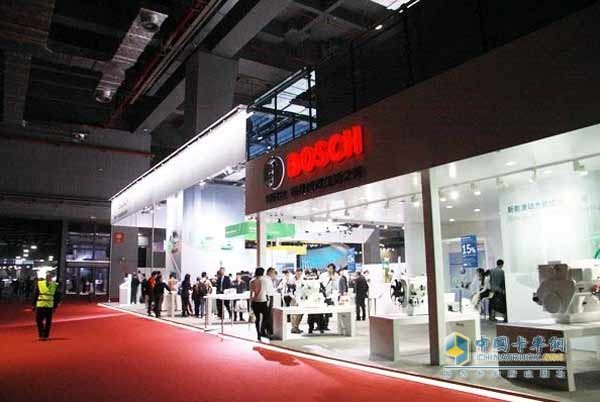In 2015, the growth rate of China's automobile production and sales slowed to 3.3% and 4.7%. How should multinational car companies adjust their investment strategies for the Chinese auto market where the economic situation seems to be unclear?

Bosch Continues Investment Strategy of "Continuous Investment"
Do not change the investment of Bosch in China without change
According to Chen Yudong, Bosch has maintained an average annual growth rate of more than 20% in terms of sales over the past 15 years. Bosch's business in China mainly revolves around two business segments, namely the automotive industry and the non-automotive industry. The automotive industry accounts for 60% of Bosch's market share, and non-automotive industry accounts for 40%. Last year, Bosch’s sales in China were close to 80 billion yuan, which is inseparable from the continuous growth of the Chinese auto market.
Bosch continues its investment strategy of “sustained investmentâ€, laying the foundation for current and future production capacity and welcoming emerging markets that are about to erupt. As one of the world's largest suppliers of automotive parts, Bosch sees the future development trend of the automotive industry in the direction of electrification, automation and smart interconnection, and does not shrink investment in the contrarian. While digging deep into the Chinese market, the localization strategy will be effectively implemented.
Chen Yudong, who is well-established in the Chinese market, said that although the pattern of the Chinese auto market is changing, Bosch's investment in China will not change. "Bosch's development strategy in China is to use local factories to serve the local market. Therefore, as the Chinese auto market continues to grow, we must invest in China. Bosch's investment in China is based on Bosch's business in China. Growth and growth." Chen Yudong said.
From the perspective of the automotive industry, Bosch’s investment efforts last year and this year are still between 2 billion and 4 billion.
Electrification, Automation, and Smart Interconnect Investment Requires Targeted Investment
According to Chen Yudong, the future of the Chinese market is still full of opportunities. There will also be a relatively high-speed growth in the sedans and related businesses, and the micro-growth or negative growth in the construction machinery and commercial vehicle sectors will be achieved. “We have maintained a 20% growth rate over the past 15 years, but it is impossible to maintain a 20% growth rate forever and we must adapt to the new normal of the Chinese economy.†Chen Yudong said, “We are not worried about the future fluctuations of the Chinese economy. The Chinese economy still maintains a forward trend."
Under the current economic situation, we must be targeted in order to maximize the benefits of investment. In the Bosch business segment, the automotive industry plays an important role, and the non-automotive industry cannot be ignored. Chen Yudong is confident in the prospects of the electrification, automation and smart interconnection of the automotive industry. At the same time, Bosch also has its own “small calculations†for industrial 4.0, smart homes and future emerging products in the non-automotive industry.
"In the future, Bosch hopes to bring products that are more advanced and more suitable for China's national conditions. In the automotive industry, the first is electrification, and new energy-related products must be more aggressively introduced; second is auto-driving of automobiles, and products related to automotive safety. It is also the focus of the work in the future; the last is the intelligent interconnection of cars, which also requires more energy input.†Chen Yudong said. These three aspects are the direction that Bosch will invest in the automotive industry in the future.
Localization of investment talent and technology is not compromised
Chen Yudong believes that Bosch's localization strategy mainly lies in two aspects: first, the selection and appointment of local talent in China, and second, the localization of technology research and development. It is understood that Bosch has more than 60 factories in China and employs 53,000 people. Of the 53,000 people, 99% are selected from China, and only 1% are sent by foreign parties. Chen Yudong believes that, in addition to technology, the most important thing for a company's growth is talent. The localization of talents can enable enterprises to better serve the local community and root their own localities, which in turn will make it easier for companies to implement their localization strategies.
As for the localization of technology research and development, according to Chen Yudong, Bosch currently has nearly 10% of its employees (more than 5,000) engaged in engineering technology development. The scope of work includes technology research and development to application development. At the same time, for the localization of technology research and development, Bosch also invested a lot of money, R & D costs accounted for 10% of corporate revenue, accounting for the highest proportion in the entire automotive industry.
At the same time, some research results of Bosch China R&D team have become part of Bosch's global R&D work. Chen Yudong believes that paying attention to talent and investment in R&D expenditure is the best way for innovation to drive the development of enterprises, and it is also the focus of the company's work in transformation and upgrading.
Regarding the Chinese automobile market and even China’s economic situation, Chen Yudong expressed his confidence as a rock solid with “three constantsâ€. In other words, "Bosch's investment in China will not change and investment in the Chinese market will not change, and the strategy of continuing to recruit talent will not change."
Water Cooling Rolls,Water Cooled Rollers,Water Cooling Rolls Back,Water Cooled Roll
Jiangsu Kinuo Furnace Roller Co., Ltd. , https://www.jskinuoroller.com
